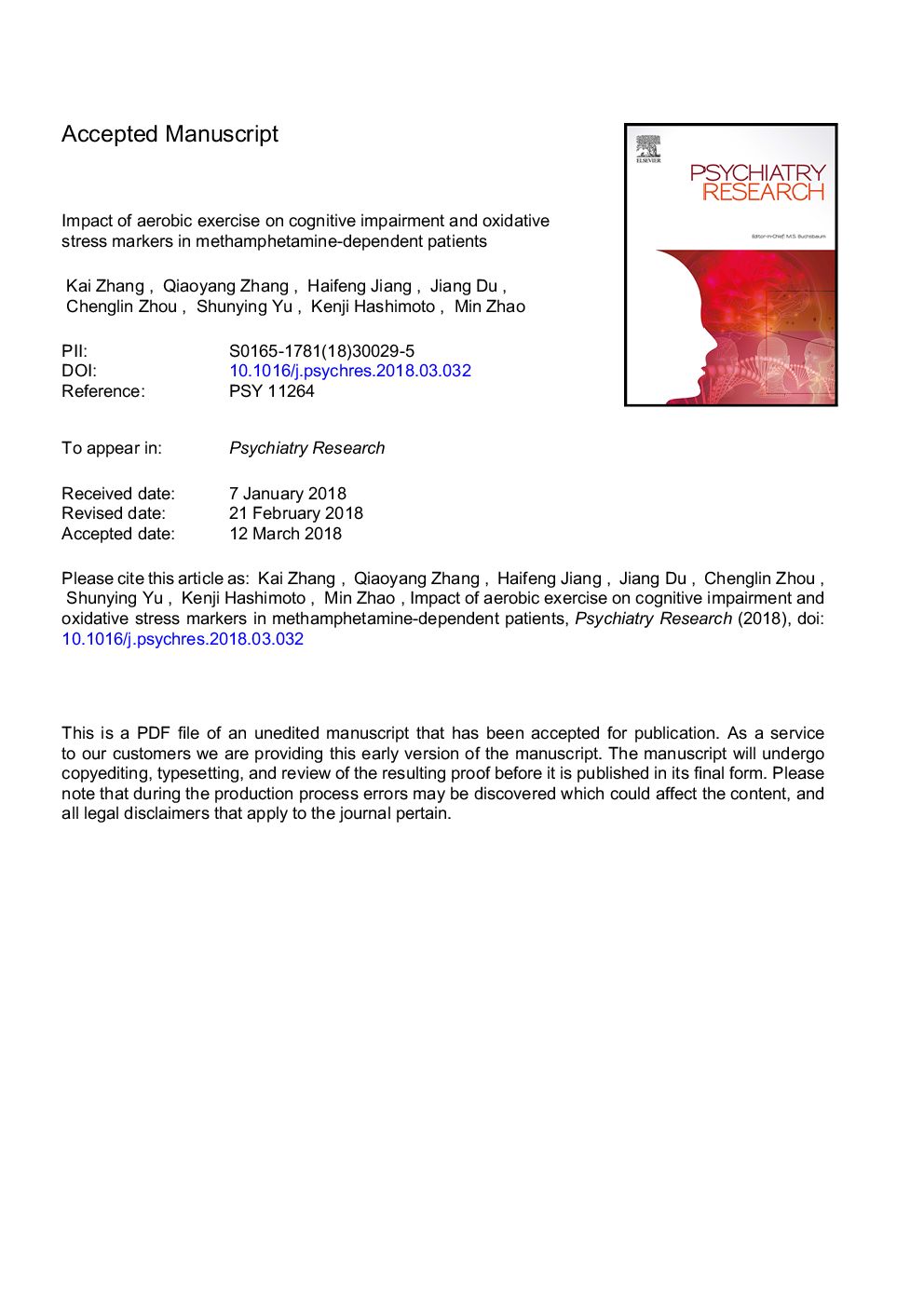| Article ID | Journal | Published Year | Pages | File Type |
|---|---|---|---|---|
| 6811366 | Psychiatry Research | 2018 | 33 Pages |
Abstract
This study aimed to investigate whether 12-week moderate-intensity aerobic exercise has beneficial effects on oxidative stress markers in blood and on cognitive functions in patients who have methamphetamine dependence. Serum levels of oxidative stress markers, including total anti-oxidation capability, super oxide dismutase (SOD), catalase (CAT), and methane dicarboxylic aldehyde (MDA), were measured at baseline (all participants) and the 12-week follow-up (methamphetamine-dependent patients). Serum levels of CAT and MDA in methamphetamine-dependent patients (nâ¯=â¯68) were higher than those in healthy controls (nâ¯=â¯35) at baseline. Furthermore, the international shopping list (ISL) task scores of methamphetamine-dependent patients were significantly lower than those of the controls, indicating verbal memory deficits in methamphetamine-dependent patients. Although there were no significant interactions for all cognitive function scores, aerobic exercise improved the processing speed in methamphetamine-dependent patients. Of interest, aerobic exercise significantly attenuated a spontaneous increase in serum MDA levels in methamphetamine-dependent patients after 12-weeks of abstinence. In conclusion, this study showed that methamphetamine-dependent patients with verbal learning and memory deficits have higher serum levels of MDA, and that a 12-week aerobic exercise program may have beneficial effects on the processing speed as well as blood lipid peroxidation in methamphetamine-dependent patients.
Related Topics
Life Sciences
Neuroscience
Biological Psychiatry
Authors
Kai Zhang, Qiaoyang Zhang, Haifeng Jiang, Jiang Du, Chenglin Zhou, Shunying Yu, Kenji Hashimoto, Min Zhao,
